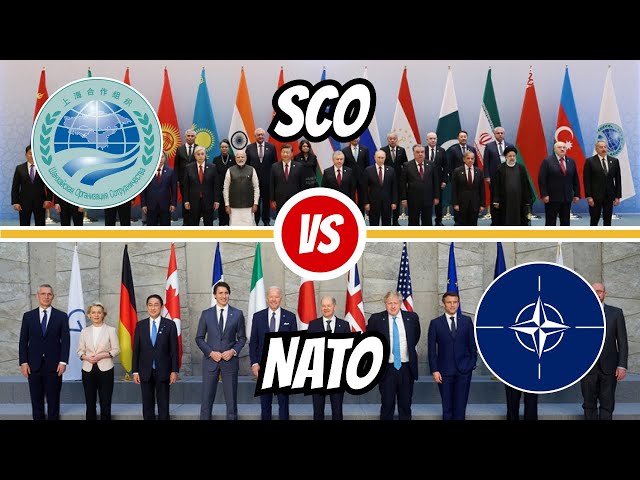
He Wenping, Senior Research Fellow, Charhar Institute and West Asia and Africa Studies Institute of the China Academy of Social Sciences
Jul 26, 2024
The new Iranian president, Masoud Pezeshkian, is a reformer who may represent a change in the country’s national mindset. But he will likely to continue to “look East” in the future, fostering closer economic and trade cooperation with China.

Zhang Yun, Professor, School of International Relations, Nanjing University
Jul 25, 2024
The Shanghai Cooperation Organisation’s principle that economic development and security are inseparable, is far more advanced than NATO’s exclusive security concept and will inevitably become mainstream in the field of international security.

Zhang Tuosheng, Principal Researcher at Grandview Institution, and Academic Committee Member of Center for International Security and Strategy at Tsinghua University
May 22, 2024
Despite their positive aspects, globalization, multi-polarization and technological advancement come with pronounced negatives that pose challenges to the post-Cold War world order. The only way forward is for the West to cooperate with China and engage in active and candid dialogue.

Zhang Tuosheng, Principal Researcher at Grandview Institution, and Academic Committee Member of Center for International Security and Strategy at Tsinghua University
May 22, 2024
Despite their positive aspects, globalization, multi-polarization and technological advancement come with pronounced negatives that pose challenges to the post-Cold War world order. The only way forward is for the West to cooperate with China and engage in active and candid dialogue.
Li Yan, Director of President's Office, China Institutes of Contemporary International Relations
May 08, 2024
Despite its name, the new Washington Consensus has the adverse effect of impeding the formation of real consensus because of its underlying zero-sum mindset. It is simply an instrument for the United States to maintain its hegemony in the world arena, and that is destructive to the international order.
Li Yan, Director of President's Office, China Institutes of Contemporary International Relations
May 08, 2024
Despite its name, the new Washington Consensus has the adverse effect of impeding the formation of real consensus because of its underlying zero-sum mindset. It is simply an instrument for the United States to maintain its hegemony in the world arena, and that is destructive to the international order.
Dong Chunling, Deputy Director, Office of the Center for the Study of a Holistic View of National Security, CICIR
Dec 21, 2023
The statesman recognized the inevitability of China’s rise and suggested how the United States should handle it. The two countries have the capability to bring peace and progress to the world, as well as the ability to destroy it all. Which will they choose?

Gu Bin, Associate Professor, Beijing Foreign Studies University
Oct 11, 2023
It is based on American-style multilateralism but transcends it. China wants to optimize the existing order rather than create a new one. It wants to inherit the American style’s merits but correct its defects and add an element of consultation.
Chen Jimin, Guest Researcher, Center for Peace and Development Studies, China Association for International Friendly Contact
Oct 03, 2023
Even though the United States acknowledges that the world is undergoing significant changes, it has failed to grasp the nature of the transformation. This is lamentable, not a positive development for the global community.

Ananth Krishnan, Director at The Hindu Group, and AsiaGlobal Fellow at University of Hong Kong
Sep 22, 2023
The most significant takeaway from the September G20 Summit in New Delhi was the emergence of the Global South as a key political voice in a bitterly divided world.
Back to Top

- China-US Focus builds trust and understanding between the U.S. and China through open dialogue among thought leaders.
- Our Offerings
- Topics
- Videos
- Podcasts
- Columnists
- Research Reports
- Focus Digest
- Stay Connected
-
Thanks for signing up!
- Get the latest stories from China-US Focus weekly.